Search Engine Journal - 4 new articles
escapadas cruceros benedicto xvi mercedes gp cursos gratis nutricion burgos sgae
"Search Engine Journal" - 4 new articles
- Interviewed on Russian Search Blog Shakin.ru
- Interview with Chris Brogan, Social Media Maven
- More (Google) SERPs Research with Yolink
- Purple Prose and Link Building
- More Recent Articles
- Search Search Engine Journal
Interviewed on Russian Search Blog Shakin.ru
I really don't interview that often, especially since things have been busy with the expansion of Search & Social, but wanted to share this really cool interview I did with Mikail Shakin of Shakin.ru, a Russian search marketing blog.
In the interview I discuss launching Search Engine Journal back in 2003, my background in SEO, why I got started in search marketing in the 90's and my trip to Russia last year.
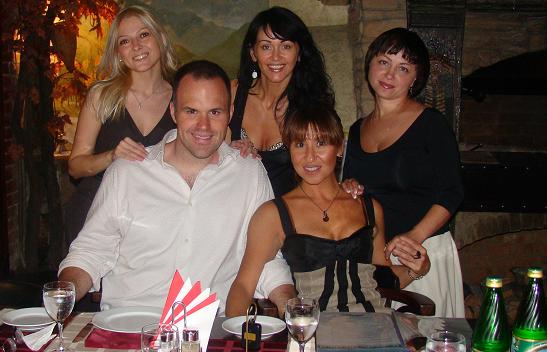
This is How Loren Baker Rolls, Russian Style
Сегодня в гостях у Shakin.ru особенный гость – Лорен Бейкер, основатель и главный редактор всемирно известного SEO ресурса SearchEngineJournal.com. Для меня большая честь взять интервью у Лорена. Если меня попросят назвать самого авторитетного SEO-специалиста в мире, я назову Лорена Бейкера. Я благодарю Лорена за то, что уделил время на интервью для читателей блога Shakin.ru.
Международное интервью – Лорен Бейкер, всемирно известный SEO-специалист
For the majority of you who do not read Russian, here is the English version of the interview :
Loren, thanks for the interview. When did you first get involved with search marketing?
Thanks for interviewing me. I first got involved with search marketing
in 1999 when I was a university student. I was looking for an
internship in advertising and marketing as I was majoring in both
fields. A lot of students were taking jobs at large businesses, but I
found an opportunity interning for a small online marketing
consultant, and took a chance in a field which was it its infancy at
the time, but I knew it would be a challenge and would result in a lot
of opportunity.Now, search marketing is a huge industry and almost all businesses use
search to gain customers or sell products. It was a good choice.How many hours do you work daily and what are your daily tasks?
I really do not clock my hours, but I would guess that I more or less
work about 12 hours a day.I usually wake up in the morning and check email, reply to tweets,
check rankings, analytics and drink coffee for about an hour. then I
review blog posts in draft mode on Search Engine Journal, moderate
comments, track search news and view some forums for another hour or
so.I then drive into the Search & Social offices and play boss all day,
going over client campaigns, writing proposals, building links and
researching search marketing initiatives. Running a business takes a
lot of time, and there all always issues that do not have to do with
search marketing. I also try to take about an hour a day to build
relationships with new people in search, and promote the great
articles and blog posts on Search Engine Journal.I used to run the blog all by myself but now I have some great help
from Ann Smarty and my partners at Search & Social, Jordan Kasteler
and Dave Snyder. Still, with all of the help the blog still needs a
lot of attention behind the scenes.When you are an entrepreneur, you have to love what you do as it is your life.
For SEO's that means you usually end up living, breathing and dreaming SEO.SearchEngineJournal.com is one the best sources of information in the
SEO world. Why did you launch SEJ? Where are you now with SEJ?This is a rather long story and although I launched SEJ in 2003, the
story begins in the year 2001. In 2001, I had been involved in SEO and
search marketing for 3 years and at the age of 26 I decided to take a
hiatus from SEO and took up an English teaching position for a company
in Japan. I wanted to travel and experience different cultures, and
this was a great way to do so. As much as I loved search, I wanted to
have some adventure in my life outside of the office, and this was my
chance.While in Japan, I was only on the computer about 3 or 4 times a week,
but at every chance, I would always check rankings of the sites I used
to work on, and also check up on search forums. I had always been
heavily involved in forums like HighRankings, SitePoint and email
lists like I-Search, and continued to check up on the trends.In 2003 I moved to Brazil, to continue my mid-twenty adventures, and
realized that unlike Japan, teaching English in Brazil would not pay
my student loans.So, I decided to take on some contracting work for the online
marketing agency I had originally interned with. I was happy to be
back and they were very happy to have me working on their clients
again. 2001 thru 2003 were very large years for SEO and search
marketing, and I had to play some catchup. I always enjoyed writing,
and decided to start tracking down search changes and my SEO research
in word documents and my own newsletter.Then, I read how Google had acquired Blogger.com and how blogs & "web
journals" were going to become a hot commodity online. I decided to
launch my own site to do my own writing on, and did some research to
find that SearchEngineBlog.com was taken, as was SearchBlog.com … so
I searched for different domain names and stumbled upon
SearchEngineJournal.com … I really loved the name and thought that
it would be a strong brand because it reflected the trend of web logs
(as blogs were called at the time) or web journals while also
associating the brand with University Research Journals and the Wall
Street Journal, so I decided to transition my newsletter into a new
blog, Search Engine Journal.SEJ started as a personal project and after a while I noticed that I
was getting more and more traffic, incoming links from authority sites
and offers from companies to advertise on the SEJ 3 months after I
started the project. My first advertiser paid me $35 a month to put a
little box on my sidebar. When I first got the check, I was so
excited.Search Engine Journal was one of 3 or 4 search blogs at the time, and
this was before Search Engine Watch became a blog and about 5 years
before Search Engine Land launched. So a lot of the success of SEJ
has to do with timing, passion and opportunity … I launched the
right blog at the right time.Over the years, with the help of many loyal readers and contributors,
SEJ has become one of the most recognized and well read blogs in not
just search marketing, but all online marketing. And as search grows,
so does the direction on the blog. I started out writing tutorials and
news … and the blog still publishes the same style of news and
tutorials (especially with the great Ann Smarty on board) but we
expand into different disciplines of search and online marketing. We
write a lot more about Facebook now because Facebook can influence
search results.I think keeping a positive and edgy approach to blogging with also
giving others in the industry the chance to shine has really been the
secret of SEJ's success. What started out as a personal project grew
into a full time job as a publication / professional blog and has also
helped to launch my Internet marketing agency, Search & Social. It's
really a dream come true.About how many visitors daily does SearchEngineJournal.com receive?
SEJ gets about 15,000 unique users per day, with 30,000 RSS readers,
over 3,000 Facebook Fans and syndication on Yahoo & Google News. For
the most part, I'd say that the majority of search marketers read SEJ
daily. There is always room for improvement and new ways to deliver
the message to readers, such as Twitter feeds and targeted social news
sharing sites.You are recognised as an authority on SEO – other than an extensive
knowledge of the subject, are there any other factors that you think
has helped you raise to the TOP in a very competitive industry?I'm not sure if I'm one of the best SEO's or a "top" SEO, but I've
always made it a point to go the extra mile for clients and to also
share what I have learned in the field of SEO with others who are new
to the field.In addition I would say that when I started SEO, I was primarily
working as an "on-site" SEO, performing audits, troubleshooting,
rewriting content, fixing site infrastructure and more or less ranking
sites based on changes made to the site. I also do a lot of
competitive intelligence to learn how the competition is ranking and
what Google likes about them. Only was it afterwards when I started
building links and implementing social media initiatives into the
overall SEO structure.I'd say that being well rounded, and open to change has been a major
factor. I gain a lot of knowledge from covering news and forums on
SEJ, I like to make it a point to apply that knowledge to my work. I
think that is only fair for me and the client.Where do you see the world of SEO in 2-3 years time?
I see SEO going in a much more social direction, with search results
targeted at user behavior becoming more and more prevalent. Google has
the ability to profile the sites we visit, the ads we click and the
groups we belong to on different social networks along with the
content that we share on Twitter… along with our years of search
history. I do not see social search or personalized search bringing an
entire transformation to SEO, but for businesses or bloggers : make
sure you build your readerbase and subscribers. Also, encourage them
to share your content on Twitter, Facebook, Odnoklassniki .. .etc.The more your content is shared by your readers, the more they will
introduce others to it and those people will also become your readers.
This will influence the search results for everyone. I still believe
that onsite usability, relevance, incoming links and conversions will
still play a huge role in SEO … about 85% of it.Thanks a lot, Loren! What is your final word to Russian bloggers?
I spent 3 weeks in Russia last year, visiting Moscow and Omsk, the
hometown of my wife Janna. I really enjoyed the trip, the vodka
and the food. I did not however get a chance to experience the
technical changes which are currently going on inside Russia, but I
did get an understanding of the Russian dominance of social media and
the importance of Rambler and Yandex to the Russian search landscape.If you're a blogger writing for Russians, I would say that the next
big thing to happen in Russia is to be the surge of the mobile web
beyond smartphones, with tablets and slates becoming more and more
used everyday in Russian life, even outside of Moscow. Russians are
people on the go, and yes, the home PC has become a main research and
communications factor in the Russian household, but Russians web
connectivity will grow at the mobile level; in the subways, the buses,
the trains, the shuttles and on foot. So, if you are a Russian blogger
writing for a Russian audience, again … attract more RSS subscribers
and followers as these are the loyal readers who will be reading your
content while on the go.If you're a Russian blogger writing for an International audience,
you'll have to take more into account that Yandex and Rambler won't
you? First of all, subscribe to Search Engine Journal's RSS feed as
we're building out our SEO news coverage. Also, be sure to follow SEO
forum conversation in forums like Webmaster World, High Rankings and
others. There is a great blog in the US called Search Engine
Roundtable which summarizes the main conversations happening in search
forums, I highly suggest subscribing to it.One big tip is to encourage comments and conversation on your blog.
The comments after a blog post can transform an original paragraph or
two into a chapter of content. Your readers are your greatest ally
when they comment or have a conversation on a blog post.Also, one thing I like to do is read and follow blogs which may not be
about search, but have proven success in their respected fields. This
way, I get "outside of the box" and come up with ideas from top blogs
like TechCrunch, Mashable, GigaOm and paidContent. Every time I read
one of these blogs, I get an idea for Search Engine Journal, maybe an
idea on displaying advertising or perhaps a new column idea. Learn
from the best!Check out the SEO Tools guide at Search Engine Journal.
Interviewed on Russian Search Blog Shakin.ru
Interview with Chris Brogan, Social Media Maven
It took me quite a bit of time to complete this post, because all the pieces fell into place last week at CES. I interviewed Chris Brogan in mid December for the Search Exchange conference @SearchExchange, and ran into him at CES with some other folks. I broke up this post with the Q&A, my thoughts, and some pointers.
Robert: What things can you attribute to your success?
Chris: Helping people and having a platform/community to do it.
MyThoughts – I have done mortgages for a long time, and I used to frequent forums just to answer questions and/or help people with their questions. After building myself in that community, a lot of people would see that I had X amount of posts, and would consider me to be a 'SR member'. I used to receive a lot of mortgage leads this way, and the rule of thumb here is "Help Others to Help Yourself". I recently did this at Webproworld, and received 2 consultation calls from 1 thread. I didn't offer my services…they just PMed me.
Lesson - Help others, and expect nothing back. Frequent forums, blogs, twitter, and other types of websites in your niche where interactions can occur between you and potential clients AND onlookers. Someone is always watching. You can do this on twitter by searching for keywords on search.twitter.com and spending time answering questions! (great way to build followers)
Robert: What are one of the first things you notice when you meet another business professional?
Chris: All their teeth (LOL, I guess he doesn't get along with football players). Do they talk about themselves or talk about others.
MyThoughts – I received a lot of inquiries from other states, and I couldn't help them since I was only mortgage licensed in a few states. I would find out what city/state they were in, and would find a local mortgage professional to help them out. Within time the extra started to payoff, and I started to receive leads from professionals in other states.
Lesson – Build a network with business professionals in your area and other states. LinkedIn is great in recommending others, and keeping in contact with people you have worked with. Think of others, and they will start thinking of you!
Robert: What's the next social media platform you see people using?
Chris: BrightKite or location based social platforms
MyThoughts – I was recently chatting with Robbie Hodge @Taldir at CES about his use and success with FourSquare. Robbie sells consumer electronic products, and was telling me how he checks in everytime he goes to work. Within time the tweets from FourSquare paid off. A lot of people didn't know what he did for a living, but the FourSquare tweets helped his followers take notice. This program can help you promote your business 'indirectly' by tweeting your whereabouts. Robbie mentioned that he received 2 sales within a short period of time of using FourSquare. He also uses it whenever he goes out to eat which is basically free advertisement for the establishment he's visiting.
While at CES I met @AyaZook (Bing's Product Manager), and he showed me Bing's new product called Twitter Maps. Very Cool. Not only can you see where the profile is located, you can also see where a Tweet was originated. Now if Robbie tweets that he's at some restaurant, I'll know if he really is there…or just promoting them. :)
Lesson – Starting using location based apps so potential clients can see where you are, and may even stop by your place of business! If you own a business, you can promote specials like "Come to ABC Business and check in to Foursquare to receive free appetizer". Customer gets free appetizer, and ABC Business gets YOU to tell your friends about ABC Business.
Robert: In your book Trusted Agents you speak about Joe Pistone aka Donnie Brasco hooking up with Lefty. If Lefty was on the web, how would you hook up with him? Who are the Lefty's on the web?
Chris: Be Helpful…Give to get. Treat them like equals.
Chris: Frank Eliason, Comcast @comcastcares, Christopher Barger, GM @cbarger, Matt Cutts, Google, @MattCutts
Thoughts – One of the biggest dilemnas we have in our online/offline business is getting to the heavy hitters. They're usually busy or won't talk to you if you're not important. Donnie Brasco worked his way up the mob, and learned the favorite spots of where the mobsters were hanging out. Twitter is a favorite spot for a lot of the heavy hitters which can provide fast/easy communication without going through hoops.
Lesson – Learn the online spots AND offline spots where the heavy hitters like to hangout. Chris mentioned @RShotel a Social Media Hub located in New York.
Lesson2 - If you can't get the heavy hitter to respond to you on Twitter, then find out who they will respond to. Chris Brogan responds to a lot of people through twitter…even through Direct Messages. If he didn't respond to anyone, I would go after his buddies like Kristopher Smith @croncast who was introduced to me at CES by Chris Brogan. When the heavy hitters see you interacting with their circle, you're more than likely going to receive a response from them.
Robert: Why follow so many people or why shouldn't you follow so many people?
Chris: Underfollow you're the elitist, overfollow you're a spammer, 1 to 1 ratio and you're reciprocal.
Chris: Stay away from getting hacked
Thoughts – Getting hacked is a pain because you may ruin your chances with building business online. If you can't protect your password info, then why should a client trust you with their information?
I highly recommend you purchase Trust Agents which can help you take your business to the next level.
You can follow Chris Brogan @ChrisBrogan or go to his website http://chrisbrogan.com/You can contact Robert Enriquez at his SEO Company site, through his twitter account @NC_SEO, or on his SEO Blog
Check out the SEO Tools guide at Search Engine Journal.
Interview with Chris Brogan, Social Media Maven

More (Google) SERPs Research with Yolink
Yolink is a nice new tool that searches through the content linked from the current page (available to both FireFox and Google Chrome users). Basically, it works as follows:
(1) You find a page which links to some other pages (let's call them "linked pages")
(2) You open the tool in the sidebar and provide the search term;
(3) The tool will look for the provided term on the linked pages and show you the summarized content.I found the tool especially useful for various SERPs research.
Let me show one example: let's say my main keyword is [diabetic diets] and I want to research which (and how many) pages found for its core term [diets] mention [diabetes] or [diabetic]. My steps would be:
1. (With Yolink installed) I search Google for [diets];
2. I click the Yolink icon in the address bar to toggle the tool sidebar; In the sidebar I provide my second keyword [diabetic] and choose one of the options (exact match, "best" match, match one of the search terms, match all the search terms):
3. Now I can watch the tool generate snippets from the linked pages and highlight my search term:
- The listing number represents the link on the base page (which is Google SERPs in our case);
- If there are several extracts containing the search term within one listing, they will be marked with letters;
- When you hover over any listing in Yolink results, you will be able to see its number on the base page:
4. Now just scroll through results to see which pages contain your term and how they use it:
Isn't it useful?
More things you can do with Yolink:
- Scan the current page links or text;
- Send results directly to Blogger, Wordpress, Facebook or Twitter.
Do you see yourself using this tool? Please share your thoughts!
The tool was reviewed under SEJ policy.
Check out the SEO Tools guide at Search Engine Journal.
More (Google) SERPs Research with Yolink
Purple Prose and Link Building
Purple prose is a lovely name given to the style of writing that tends to be so extravagantly worded that you really have very little idea of what's actually being said. I, myself, am very, very guilty of writing in this manner. I have The Smiths, Wuthering Heights, and a tendency towards pretentiousness to blame for it, too.
I bring up this idea in relation to link building because it's actually quite relevant in three major ways.
1. Emails for link requests
Now, I occasionally need to reread an email of mine for various reasons, and when I do, I'm sometimes shocked (and usually a bit mortified) by how wordy I can be when I try to explain something. The problem that I have is that that's just the way I see things. Nothing is simple or black and white for me…it's all tinged and colored, just like my sentences. I think that connotations are every bit as important as denotations in describing something, and there are many times in which I think I've been perfectly clear, and not a single person gets my true meaning. That's a serious failure on my part.
With regards to emailing a potential link host, it's obviously critical that you don't spend ages crafting some flowery email that needs to be read and read again just to get the point. Webmasters don't have time to read loads of nonsense. They want to know why you're bothering them, so if you want to get a link, say so. I know that there are loads of people out there who will tell you not to do this right upfront, but I've found that most successful emailed link requests do get to the point pretty quickly. You may luck up, write to a very bored blogger, be able to exchange dozens of overwritten emails, then, weeks later, nicely ask for a link, and be lucky enough to get it. However, these occasions are very rare, so don't bother people with loads of crap about how great their website about roach control devices is. Tell them you would love a link, tell them why they should link, and make the deal in your fashion. I'm not suggesting that an email of "hey can I get a link? I'll send you a 10 spot. Let me know when it's up" is the way to go about this, but certainly there's a happy medium to be found.
2. Writing content to generate links
This one is tricky for me because I actually really enjoy reading purple prose. All the suffering, the cliches, the overwrought expressions! That stuff was made for people like me. One main problem of writing in this style is that in the attempt to convey meaning through turns of phrase, you can very easily not actually use the damned keywords that you want to promote through your content. Metaphors and similes might not give you top 10 rankings. Obviously people can link to you with nice, proper keywords, but it DOES help if those keywords are in the actual content itself.
Another issue is that some people might not understand your intent and meaning. As much as I don't want to insult the general public, today's chaotic culture isn't exactly conducive to long attention spans where people have time to soak up your words. They aren't relaxing in the bath with a well-thumbed copy of your content. They want to read it (or skim it) and get something out of it. If 95% of your content is extraneous bullshit, it's not skimmable. If it can't be understood easily in a few minutes, it's not going to get passed around, and it's not going to generate very many links.
3. Retweets on Twitter
Since retweets are the main way in which links are shared on Twitter, and Twitter is, well, fairly popular right now, it's crucial that you don't get all adverby on everyone. With 140 characters in which you grab someone's attention, you want action words. You want something succinct or you may never get the chance to have all that brilliant content read. In the spirit of Twitter, I'm keeping this explanation short and to the point.
So I'm trying to embark upon a quest to be more succinct, using the following guidelines:
1. Keep it short. Since it's more difficult to read on the computer screen than it is to read something on paper (you damned Kindle readers!), keep it short. I know that this has gotten much, much better over the past few years, but still, it's more difficult to read online and thus you shouldn't go on at length for 3 pages about something.
2. Illuminate action words. These are your keywords, and they should be easily seen with a quick scan of the content. I don't mean that you need to actually embolden them…just put them in the right places so that a reader can skim the content very quickly and ascertain its meaning.
3. Share the pain. By that, I mean let someone else read what you've written, and see if he or she gets the same points that you intended to make. I know what I'm trying to say, but not everyone else can figure it out due to the convoluted way in which I speak and write. If you let someone read your email or content and the meaning isn't clear, redo it until it is. Don't expect that everyone knows what you mean.
4. Don't overuse metaphors and similes. I am horrible about this, as I find nothing more entertaining than mixed metaphors, but really, most people are better off not having to read them and eye-roll like they're auditioning for a silent film. And yes, I see the irony there, thanks.
5. Be forthright. No one likes it when you're coy, trust me. If you want something, say it, don't dance around the point. We're all too busy.
In conclusion, when you see posts about how to write good headlines, for example, take the time to read them and learn from them. The same applies for anything designed to help you make your point and make it quickly. Life's too short for people to spend much time on something when we're in information overload on the web.
Julie Joyce owns the link development agency Link Fish Media, is one of SEO Chicks, and contributes to Search Engine Land and Search Marketing Gurus.
Check out the SEO Tools guide at Search Engine Journal.
Purple Prose and Link Building
More Recent Articles
Your requested content delivery powered by FeedBlitz, LLC, 9 Thoreau Way, Sudbury, MA 01776, USA. +1.978.776.9498
Toda información que se vaya publicando sobre la evolución de los dominios .tel , creados para liderar el futuro, se irá poniendo en este blog. Web patrocinada por TELrural.com
martes, 19 de enero de 2010
Search Engine Journal - 4 new articles
Suscribirse a:
Enviar comentarios (Atom)

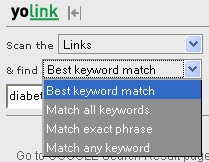
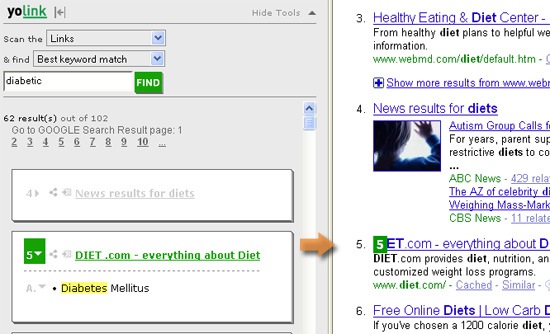
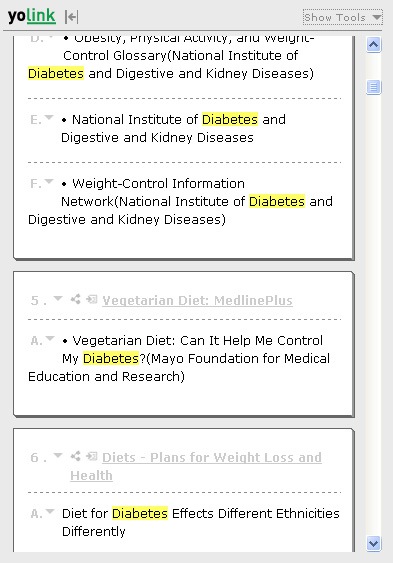
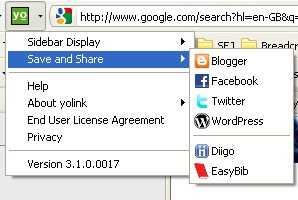

How To Make money with affiliate programs Today. Affiliate marketing is the easier and probably the most effective method to make money from the internet. It is basically, a kind of selling technique where potential buyers from your website are directed to the websites of sellers. For every click, the website owner gets a small commission.
ResponderEliminarwww.onlineuniversalwork.com